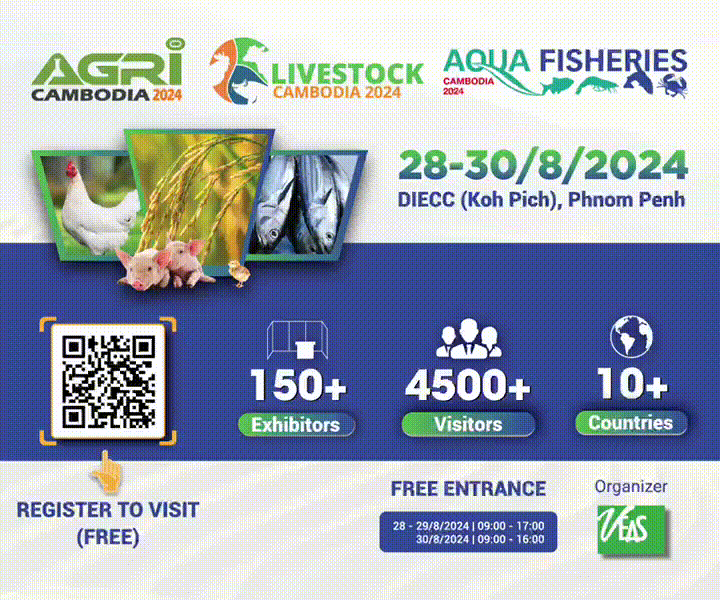
To mark World Cleanup Day in Cambodia, around 700 people took part in a massive clean up along the riverside in Phnom Penh. The event was held under the theme "Clean Cambodia, We Can Do!" on August 21. KOICA
The volume of waste in Phnom Penh has increased threefold, reaching 3,500 tonnes per day, according to recent data. In response to the increase, the Ministry of Environment has plans to launch campaign which promotes waste separation to achieve a plastic bag-free Cambodia by the end of 2025.
During August 21 celebrations of World Cleanup Day in Cambodia, under the theme "Clean Cambodia, We Can Do!", about 700 people, including including citizens, students, waste collectors and representatives from various related institutions, took part in a massive clean up along the capital’s riverside.
The event, presided over by Minister of Environment Eang Sophalleth and South Korean Ambassador to Cambodia Park Jung-wook, saw more than one tonne of solid waste collected, equivalent to a reduction of 189 kilogrammes of carbon, according to the Korea International Cooperation Agency (KOICA) in Cambodia.
Phnom Penh municipal governor Khuong Sreng noted that the volume of solid waste in the capital has been steadily increasing. Compared to 2009, the amount of waste has now tripled.
“In 2009, the volume of daily waste was just over 1,000 tonnes, but by 2024, it had increased to 3,500 tonnes per day. This is due to population growth, as well as economic growth,” he said.
During the clean up, the environment minister explained that waste management has already been delegated to the local level, with many waste collection companies now working effectively throughout the Kingdom. In Phnom Penh, three such companies are currently contracted.
Sophalleth added that in addition to the public awareness campaigns and commitments that have already been made, the ministry will push forward with a new campaign which focuses on waste segregation, particularly the separation of plastic bags from general waste.
“Plastic bags should be separated for recycling, while general waste can be disposed of or composted. This way, the amount of waste will be reduced rather than continually increasing,” he told the participants.

Two volunteers collect solid waste from the streets of Phnom Pen during the August 21 event. More than one tonne of waste was collected. KOICA
He expressed his confidence that through the campaign, “By the end of 2025 or in the middle of the current government mandate, around 80 per cent of the population will participate in a commitment to avoid using plastic bags”.
“I will push beyond that commitment to do it right away. This way, we can work together to keep school grounds, pagodas and other public spaces clean,” he added.
Sophalleth explained that environmental health consists of three key aspects: in the air, on the ground and in the water. The ministry has been actively working to prevent pollution in all three areas.
He explained that air quality in Cambodia is regularly monitored by the ministry and remains free from pollution.
On the ground, the ministry has been raising awareness about environmental impacts and is committed to improving environmental conditions.
“Our efforts to eliminate plastic bags have seen over 9.5 million participations. By 2025, plastic bags could be eradicated from the streets of Cambodia,” he suggested.
Regarding water quality, he noted that the ministry has also been focusing on monitoring water quality, ensuring that water sources remain clean. The ministry urges all factories and enterprises to install automatic water quality monitoring devices to ensure that the water they discharge is clean, and not polluting natural water sources or endangering public health.
The minister called on citizens, authorities and related institutions to continue improving the environment in all three areas, stressing that “A healthy environment will lead to better health for people and animals alike”.












